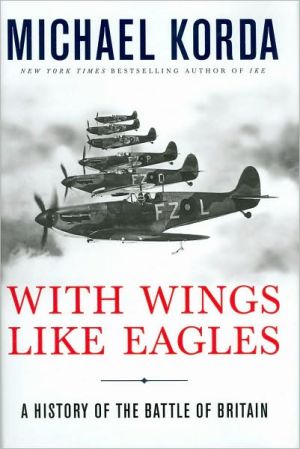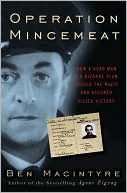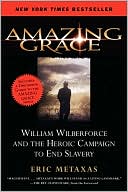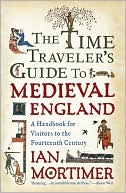With Wings Like Eagles: A History of the Battle of Britain
Michael Korda's brilliant work of history takes the reader back to the summer of 1940, when fewer than three thousand young fighter pilots of the Royal Air Force—often no more than nine hundred on any given day—stood between Hitler and the victory that seemed almost within his grasp.\ Korda re-creates the intensity of combat in "the long, delirious, burning blue" of the sky above southern England, and at the same time—perhaps for the first time—traces the entire complex web of political,...
Search in google:
Michael Korda's brilliant work of history takes the reader back to the summer of 1940, when fewer than three thousand young fighter pilots of the Royal Air Force often no more than nine hundred on any given day stood between Hitler and the victory that seemed almost within his grasp. Korda re-creates the intensity of combat in "the long, delirious, burning blue" of the sky above southern England, and at the same time perhaps for the first time traces the entire complex web of political, diplomatic, scientific, industrial, and human decisions during the 1930s that led inexorably to the world's first, greatest, and most decisive air battle. Korda deftly interweaves the critical strands of the story the invention of radar (the most important of Britain's military secrets); the developments by such visionary aircraft designers as R. J. Mitchell, Sidney Camm, and Willy Messerschmitt of the revolutionary, all-metal, high-speed monoplane fighters the British Spitfire and Hurricane and the German Bf 109; the rise of the theory of air bombing as the decisive weapon of modern warfare and the prevailing belief that "the bomber will always get through" (in the words of British prime minister Stanley Baldwin). As Nazi Germany rearmed swiftly after 1933, building up its bomber force, only one man, the central figure of Korda's book, Air Chief Marshal Sir Hugh Dowding, the eccentric, infuriating, obstinate, difficult, and astonishingly foresighted creator and leader of RAF Fighter Command, did not believe that the bomber would always get through and was determined to provide Britain with a weapon few people wanted to believe was needed or even possible. Dowding persevered despite opposition, shortage of funding, and bureaucratic infighting to perfect the British fighter force just in time to meet and defeat the German onslaught. Korda brings to life the extraordinary men and women on both sides of the conflict, from such major historical figures as Winston Churchill, Neville Chamberlain, and Reichsmarschall Herman Göring (and his disputatious and bitterly feuding generals) to the British and German pilots, the American airmen who joined the RAF just in time for the Battle of Britain, the young airwomen of the RAF, the ground crews who refueled and rearmed the fighters in the middle of heavy German raids, and such heroic figures as Douglas Bader, Josef Franti ek, and the Luftwaffe aces Adolf Galland and his archrival Werner Mölders. Winston Churchill memorably said about the Battle of Britain, "Never in the field of human conflict was so much owed by so many to so few." Here is the story of "the few," and how they prevailed against the odds, deprived Hitler of victory, and saved the world during three epic months in 1940. The Washington Post - Diana Preston …passionate and eloquent …With Wings Like Eagles is a skillful, absorbing, often moving contribution to the popular understanding of one of the few episodes in history to live on untarnished and undiminished in the collective memory and to deserve the description "heroic."
\ With Wings Like Eagles\ \ A History of the Battle of Britain \ \ \ \ By Michael Korda \ HarperCollins \ Copyright © 2009 \ \ Michael Korda\ All right reserved. \ \ \ ISBN: 978-0-06-112535-5 \ \ \ \ \ Chapter One "The Bomber Will Always Get Through." \ -Prime Minister Stanley Baldwin, House of Commons, 1932\ Few moments in British history are so firmly fixed in people's minds as the summer of 1940, when, after the fall of France, fewer than 2,000 young fighter pilots seemed to be all that stood between Hitler and the victory that was almost within his grasp. Like the defeat of the Spanish Armada and Nelson's victory at Trafalgar over the combined fleets of France and Spain, it is etched deeply into the national consciousness as a moment of supreme danger when Britain, alone, courageous, defiant, without allies, defeated a more powerful and warlike enemy in the nick of time.\ Today, nearly seventy years later, the Battle of Britain-as it rapidly came to be called, after a phrase in one of Winston Churchill's greatest war speeches -unlike many other great events of World War II, has lost none of its luster. As modern warfare goes, it was, up to a point, both glamorous and gentlemanly (though, as we shall see, it involved plenty of horrors, atrocities, and suffering), and it was fought by fairly "dashing" young men on both sides (and on the ground, on the British side of the Channel, also by young women, the WAAFs of the Women's Auxiliary Air Force who operated the radar plotting stations and took their full share of casualties).\ Of course there is, among the victors at any rate, a natural tendency to glamorize the past, but even allowing for that, the Battle of Britain still retains a certain glamour, and not just in the United Kingdom-even the Germans, who lost the battle, are still fascinated by it, to judge by the number of German-language books and Web sites on the subject, as are the Japanese, who were not even in the war at that time. In Britain it is still commemorated annually on Battle of Britain Day, September 15. Until 1959, the events of the day included the "fly past," of a carefully preserved Spitfire and Hurricane, the two principal British fighter aircraft of the battle, flying low over London, weather permitting, the unfamiliar low-pitched, throbbing roar of their twelve-cylinder Rolls-Royce Merlin engines music to the ears of those old enough to have heard it before, as they passed over Buckingham Palace and climbed swiftly away. For a time, they were flown by aces who had taken part in the Battle of Britain, but soon they were too old to fly anymore.\ Given time, all historical events become controversial. That is the nature of things-we question and rewrite the past, glamorizing it or diminishing it according to our own inclinations, or the social and political views of the present. Historians-indeed whole schools of history-have made their reputation by casting a jaundiced eye on the victories, heroes, and triumphs of their forefathers. Nobody in academe gets tenure or a reputation in the media by examining the events of the past with approval, or by praising the decisions of past statesmen and military leaders as wise and sensible.\ Not surprisingly, the Battle of Britain has come in for its share of revisionary history and debunking, though given its special standing as (let us hope) the last in the series of great battles in which Britain stood alone against a tyrant threatening invasion (and seeking at the same time hegemony over the European continent), it has not come in for the kind of sharp criticism directed toward British motives and generalship in, for example, the American Revolutionary War, the Crimean War, or World War I. There is no equivalent here of General Burgoyne's surrender at Saratoga, or the Charge of the Light Brigade, or the First Battle of the Somme. As at Trafalgar, the British got it triumphantly right-RAF Fighter Command made up for years of dithering, pessimism, and appeasement among the politicians between the wars (the "locust years," as Churchill called them), and also of doubt in the Air Ministry that fighters could defend Britain against air attack, since the conventional view was not only that "the bomber will always get through," a phrase Prime Minister Stanley Baldwin had borrowed from an immensely influential book by the Italian theorist of aerial warfare Giulio Douhet, but that the only defense lay in having a bomber force big enough to deter any continental enemy. "The only defense is in offense," Baldwin warned the House of Commons darkly in 1932, "which means that you have to kill more women and children more quickly than the enemy if you want to save yourselves." This was a grim prospect, which the prime minister, like most members of the House, wanted to eliminate or discourage altogether, rather than to prepare for; indeed, he was arguing against increasing military expenditure at the time.\ Throughout the 1920s and the early 1930s, Fighter Command (as it eventually came to be called) was the Cinderella of the Air Ministry. Such money as was made available to the RAF by the politicians was used, according to the prevailing orthodox doctrine of air power, to build up Bomber Command. In theory, money spent on fighters was money down the drain, since the only real protection was thought to be a force of bombers large enough to scare off the Germans.\ Reluctant as the British government and the air marshals were to develop an effective fighter force, it remained unclear what the role of the RAF was to be in the event that a diplomatic policy of "appeasing" Germany failed to prevent a war. The roots of many of the various controversies that surround the Battle of Britain may be found, as we shall see, in the prejudice against building fighters and the mistaken belief that bombers (theirs and ours) would always "get through." In addition to this, there is a more recent, and growing, tendency to question whether the Battle of Britain in fact played the decisive role in discouraging Hitler from attempting to invade Britain when to his surprise the opportunity to do so suddenly presented itself after Dunkirk.\ (Continues...)\ \ \ \ \ \ Excerpted from With Wings Like Eagles by Michael Korda Copyright © 2009 by Michael Korda. Excerpted by permission.\ All rights reserved. No part of this excerpt may be reproduced or reprinted without permission in writing from the publisher.\ Excerpts are provided by Dial-A-Book Inc. solely for the personal use of visitors to this web site.\ \
1 "The Bomber Will Always Get Through." 12 "To England, All Eyes Were Turned. All That Has Gone Now. Nothing Has Been Done in 'the Years That the Locust Hath Eaten." 153 "I Can't Understand Why Chicago Gangsters Can Have Bulletproof Glass in Their Cars, and I Can't Get It in My Spitfires!" 334 "The Other Side of the Hill" 595 The First Act: Dunkirk and the Dowding Letter 776 Round One: "Der Kanalkampf" 1217 Round Two: Sparring 1418 Adlerangriff, August 1940 1689 The Hardest Days - August 16 Through September 15 20510 The Turning Point 283Bibliography 808Notes 807Index 811
\ Phillip CarterAny new history of World War II must clear a high bar to distinguish itself from the competitors that fill the shelves of libraries and bookstores…Michael Korda's With Wings Like Eagles, his new volume on the Battle of Britain, clears this hurdle in a modest way, by stepping back from the minutiae of the clash between the Royal Air Force and the Luftwaffe in 1940 to focus on the truly critical events that determined the outcome. The book soars in those parts in which Korda describes how the British prepared for the war in the skies, or how the Germans failed time and again to deliver a knockout blow.\ —The New York Times\ \ \ \ \ Diana Preston…passionate and eloquent …With Wings Like Eagles is a skillful, absorbing, often moving contribution to the popular understanding of one of the few episodes in history to live on untarnished and undiminished in the collective memory and to deserve the description "heroic."\ —The Washington Post\ \ \ Publishers WeeklyThe Battle of Britain has become as much myth as history. Korda (Ulysses S. Grant), former editor-in-chief of Simon & Schuster, gives its story fresh life with the expertise of an established popular historian and the polish of a master narrator. In the summer of 1940, Britain stood alone against the Third Reich, which had quickly overrun Western Europe and seemed poised to finish the job. All that blocked the Nazis were a couple of thousand fighter pilots and their commander, Air Chief Marshal Sir Hugh Dowding, the story's hero. Dowding fought to build Spitfires and Hurricanes, and trained men to fly them. He set up the radar system and the observer networks that kept watch for German raids. In the face of initial defeats, he husbanded his resources for a greater battle he knew would come. Korda is no triumphalist, demonstrating the mistakes, misunderstandings and simple cussedness that threatened the chances for a British victory. But Dowding's Brylcreem Boys, nicknamed for their favorite styling gel, succeeded against an enemy no less brave and skilled. 7 pages of color and 16 pages of b&w photos. (Jan. 6)\ Copyright © Reed Business Information, a division of Reed Elsevier Inc. All rights reserved.\ \ \ \ \ Library JournalKorda (Ike), a skilled popular historian, here retells the familiar story of the Battle of Britain as a largely political tale, emphasizing the background, personalities, and preparation for the battle instead of the fighting. Strongly recommended for public and college libraries as a literate and readable supplement to existing books on the subject, e.g., John Lukacs's Five Days in London: May 1940, but it should not be the only source on the battle.\ \ —Edwin B. Burgess\ \








